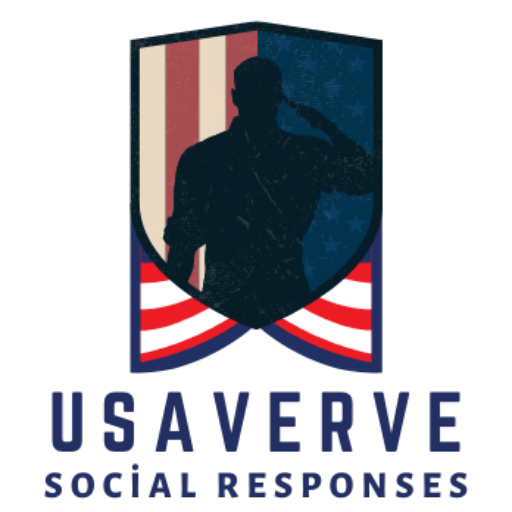25 Best Replies When Boss Says Sorry💬

Navigating Professional Responses When Your Boss Apologizes
Table of Contents
ToggleIn the professional realm, acknowledging mistakes, even for a boss, is a commendable trait. Embracing the fact that supervisors, like everyone else, are prone to errors and are willing to apologize is a positive step.
However, the question arises: How should you respond when your boss extends an apology? Crafting an appropriate response may be challenging, leaving you momentarily bewildered. Nevertheless, it’s essential to remember that bosses are human too, and your reply should reflect a sense of professionalism.
Maintaining a balance is crucial; avoid responding in a manner that may belittle or embarrass your boss. In this article, we’ll explore the art of providing the best replies when your boss apologizes, ensuring a professional and respectful approach to such situations.
25 Best Replies When Your Boss Apologizes
Responding to your boss’s apology with professionalism is key to maintaining a formal work environment. However, it doesn’t always have to be strictly formal. If your relationship with your boss involves humor and camaraderie, you can opt for more casual and even joking responses.
Expressions like ‘Thank you. It means a lot to me,’ ‘Alright, Sir, I’ll handle it,’ ‘There’s no problem, sir,’ and ‘Okay, but I won’t forgive you this easily next time’ are some witty replies suitable for various situations.
In this article, we’ll delve into the 20 best replies to use when your boss extends an apology, offering a blend of professionalism and light-heartedness tailored to different workplace dynamics.
1. I Appreciate Your Effort, Sir
2. I Understand, Sir
3. You Don’t Have to Worry Boss, I’ve Got This
4. Okay. I’m Happy We Are Passed That
5. Alright Boss, Let It not Happen Again
6. No Worries, I’ll Take Care of It
7. There’s No Problem, Sir
8. It’s Alright, You Don’t Have to be Sorry
9. Okay, Sir, We Are Good
10. Don’t Stress Over It, Boss
11. It’s Alright, Sir
12. Don’t Mention It, Boss
13. Alright, Sir, I’ll Handle It
14. Don’t Bother About It, I’ll Meet You at Your Convenience
15. Thank you. It Means a Lot To Me
16. You Have Got No Problem, Sir. What Matters Is That It’s All Over
17. Don’t Be Sorry, Sir. I Handled It Well
18. It’s Okay, It Comes with the Job
19. It Means a Lot To Me
20. Okay, But I Won’t Forgive You This Easily Next Time
21. My pleasure, Sir. We all make mistakes.
22. No harm done, Boss. Let’s move forward.
23. No need to apologize, Sir. We learn from every situation.
24. It’s water under the bridge, Boss. We’re a team.
25. Your apology is accepted, Sir. We’re focused on the solution.
I Appreciate Your Effort, Sir
Responding to your boss’s apology with gratitude is a wonderful way to acknowledge their effort in making amends. The phrase “I appreciate your effort” not only expresses gratitude but also implies that you recognize the additional steps they may have taken to rectify the situation.
Consider whether your boss made efforts to correct their mistake or took steps to publicly rectify any wrongs. This reply communicates your appreciation for the time and energy they invested in setting things right beyond a simple apology. Showcasing your gratitude adds a considerate touch to the acknowledgment of their apology.
I Understand, Sir
A reassuring response to alleviate your boss’s concerns involves expressing your understanding and assuring them that you are okay with the situation.
Acknowledging the possibility that they may have a busy schedule or might have unintentionally overlooked your work or appointment adds a compassionate touch. By conveying your understanding, you contribute to their peace of mind and foster a supportive work environment.
Crafting responses that empathize with your boss’s challenges can enhance professional relationships and contribute to a positive workplace dynamic.
You Don’t Have to Worry Boss, I’ve Got This
Responding effectively in challenging situations is crucial, and this particular reply offers a constructive approach.
For instance, if your supervisor couldn’t provide the assistance they initially committed to for a project, expressing that you’ve successfully handled the situation can be a powerful response. This not only communicates your capability but also alleviates any potential stress on their end. Embracing challenges as learning opportunities, this response fosters a positive and proactive work environment.
Okay. I’m Happy We Are Passed That
In the aftermath of a potentially dramatic incident, this response becomes relevant when your supervisor extends an apology.
If your supervisor had misconstrued a situation, resulting in an unwarranted suspension or undeserved punishment, acknowledging their apology and their effort to rectify the situation becomes crucial. This reply strikes a diplomatic tone, expressing your understanding while appreciating their acknowledgment of the mistake and subsequent corrective actions. It contributes to a harmonious work atmosphere while subtly addressing any past misunderstandings.
Alright Boss, Let It not Happen Again
Presenting a humorous reply to your supervisor is a great way to diffuse tension and convey that you are in good spirits and managing well.
It’s essential to gauge the appropriateness of this response based on your comfort level and your boss’s disposition. This approach is most effective in workplaces where the manager embraces a light-hearted atmosphere, engaging in jovial banter with colleagues. Balancing humor with professionalism, this response adds a touch of levity to the work environment, fostering positive connections with your superiors.
No Worries, I’ll Take Care of It
Offering a reassuring reply, this response assures your boss of your reliability and willingness to step in when needed.
Whether your boss is unavailable for a scheduled meeting or unable to fulfill a request, assuring them that you can handle it within your capacity is a valuable response. If you serve as a personal assistant capable of standing in their place, this reply becomes particularly relevant, especially when they extend apologies for being unavailable to meet a client or appointee.
By expressing your readiness to take charge, you alleviate their stress and concerns, allowing them to worry less about potential disruptions in their absence.
There’s No Problem, Sir
When your boss extends an apology, consider using this response that functions similarly to “alright,” effectively conveying that they need not worry.
This reply not only communicates your acceptance of the apology but also assures them that you are okay, helping them feel at ease. Whether your feelings were hurt or a commitment was unfulfilled, this response indicates that you have moved past the issue. If they missed a scheduled meeting or couldn’t fulfill a promise crucial to your task, using this reply reassures them that you have managed or already have the situation under control.
It’s Alright, You Don’t Have to be Sorry
In situations where the issue is minor and easily manageable, this response serves as an ideal reply to offer your boss.
This reply doesn’t imply discouraging apologies when warranted; rather, it signals an understanding of the situation. Additionally, it communicates that you are not placing blame on them for the occurrence, fostering an environment of empathy and mutual understanding in the workplace.
Okay, Sir, We Are Good
This response effectively communicates your acceptance of the apology and signals that you are okay with the situation.
Moreover, it reassures your employer that your professional relationship remains intact or has returned to normalcy. If the incident caused any hurt feelings, expressing this reply signifies that you have moved beyond the issue and can continue working harmoniously with them.
Don’t Stress Over It, Boss
Assure your boss not to dwell on their apology with this response. If you sense discomfort or worry in them, this reply is designed to alleviate their concerns. It serves as a reassurance that you are perfectly fine or have effectively managed the situation, urging them not to be troubled. Additionally, it conveys the message that their apology wasn’t necessary, as you’ve efficiently addressed the matter.
It’s Alright, Sir
Supervisors, being human, may experience discomfort when acknowledging their mistakes. Therefore, a reassuring response to your boss’s apology is another effective approach.
Saying “It’s alright” not only signifies your acceptance of their apology but also indicates your positive state of mind. If they’ve inadvertently hurt your feelings, this reply serves as assurance that you have already moved past it.
Moreover, if their apology pertains to a deviation from a plan, this response conveys understanding about the potential reasons for their delay.
Don’t Mention It, Boss
This response communicates to your boss that there’s no need for an apology. It serves as a positive way to convey that you’re fine, and the issue has been resolved. Moreover, it helps alleviate any concerns your employer might have had, reducing unnecessary worries on their part.
Alright, Sir, I’ll Handle It
Has your boss encountered challenges fulfilling a promise or completing a task? Maybe they faced difficulties managing their commitments, resulting in a missed important task. In response, assure them that you’ll take charge of the situation and handle whatever they couldn’t accomplish.
This thoughtful reply not only expresses your acceptance of the apology but also aims to alleviate their workload. By taking initiative and managing the situation independently, you demonstrate understanding and a willingness to ease their stress.
This response goes beyond acknowledging the apology; it fosters a sense of gratitude on your manager’s part, appreciating the support and collaboration.
Don’t Bother About It, I’ll Meet You at Your Convenience
In situations where your employer couldn’t make it to a scheduled meeting due to a busy schedule, you can respond with this thoughtful reply when they apologize. Expressing your understanding of their tight schedule, you convey a willingness to wait until they’re available.
This response encourages your boss to prioritize and allocate time for the meeting, appreciating your flexibility and understanding.
Thank you. It Means a Lot To Me
Encountering a genuinely apologetic employer is a rare occurrence in the professional realm. Expressing sincere apologies can be challenging for some bosses. Thus, when your boss takes the initiative to say sorry, acknowledging their humility, it’s natural to feel appreciative.
In such instances, conveying your gratitude and emphasizing the significance of their apology is an effective way to communicate. Letting them know that their apology holds meaning to you reinforces open and honest dialogue.
This response not only acknowledges their sincerity but also encourages a workplace culture where apologies are valued. It can be especially fitting if your boss goes beyond mere words and accompanies their apology with additional gestures, such as offering a gift or making a public apology in front of coworkers.
You Have Got No Problem, Sir. What Matters Is That It’s All Over
This response is a great way to convey your feelings when the situation has been resolved, and all issues have been rectified. It indicates that you have moved beyond any distress, accepted the apology, and extended forgiveness.
Don’t Be Sorry, Sir. I Handled It Well
This is an effective response, especially if you’ve already handled the situation. For example, if your boss was meant to attend a meeting but got delayed, and you managed the meeting in their absence, you can use this reply. It also conveys to your boss that they can rely on you in such situations.
It’s Okay, It Comes with the Job
You can utilize this response to convey to your boss that you comprehend the likelihood of such issues occurring. For instance, during a crucial period with numerous projects underway, if your boss overlooks something directly related to you, this response can be employed. It demonstrates your understanding without overreacting or placing blame, ultimately easing the situation for your boss.
Okay, But I Won’t Forgive You This Easily Next Time
While maintaining professionalism is crucial in formal settings, not all managers insist on strict formality. If your boss happens to be a friend or you share a longstanding relationship with a playful dynamic, you can respond in a more lighthearted manner.
This humorous reply serves as a way to acknowledge your amicable relationship with your boss. Simultaneously, it communicates your forgiveness and assures them that the issue is water under the bridge.
My pleasure, Sir. We all make mistakes.
In the professional realm, acknowledging mistakes is a testament to humility and growth. Responding to your boss with a simple yet powerful phrase like “My pleasure, Sir. We all make mistakes” not only reinforces a culture of understanding but also fosters a positive work environment. Embracing imperfections is a shared journey, and your willingness to extend grace speaks volumes about your character. It sets the stage for collaboration, improvement, and a team that thrives on collective learning. Remember, in the grand tapestry of the workplace, every misstep contributes to the masterpiece of experience.
No harm done, Boss. Let’s move forward.
Navigating through professional challenges often involves a graceful acceptance of setbacks. Responding with a reassuring “No harm done, Boss. Let’s move forward” not only alleviates any lingering concerns but also propels the team toward progress. It signifies resilience, emphasizing that the focus remains on the journey ahead rather than dwelling on past missteps. This positive and forward-thinking approach fosters a constructive atmosphere, where mistakes are seen as stepping stones toward success. In the grand scheme of a collaborative workspace, acknowledging setbacks becomes a catalyst for innovation and continuous improvement.
No need to apologize, Sir. We learn from every situation.
In the ever-evolving landscape of our professional endeavors, each challenge presents an opportunity for growth. Responding with a gracious “No need to apologize, Sir. We learn from every situation” underscores a collective commitment to learning and adapting. This perspective views setbacks as valuable lessons, contributing to the collective wisdom of the team. It not only reassures your boss but also reinforces the notion that every experience, whether positive or challenging, enriches our journey toward success. Embracing a culture of continuous learning fosters resilience, innovation, and a shared understanding that mistakes are integral to the path of progress.
It’s water under the bridge, Boss. We’re a team.
Navigating the waters of professional relationships, we encounter occasional waves that ripple through our interactions. Responding with “It’s water under the bridge, Boss. We’re a team” encapsulates the spirit of unity within our collaborative journey. This acknowledgment suggests that, like a flowing river, we allow past matters to gracefully pass beneath the bridge, emphasizing our collective strength as a cohesive team. It reaffirms our commitment to fostering a positive and forward-focused work environment.
Your apology is accepted, Sir. We’re focused on the solution.
In the realm of challenges, our focus remains steadfast on solutions. “Your apology is accepted, Sir. We’re focused on the solution” encapsulates a mindset dedicated to progress and resolution. By accepting the apology and directing attention toward solutions, this response emphasizes the proactive approach our team takes when faced with obstacles. It conveys a shared commitment to overcoming challenges together, creating an environment where collaboration and problem-solving thrive.




